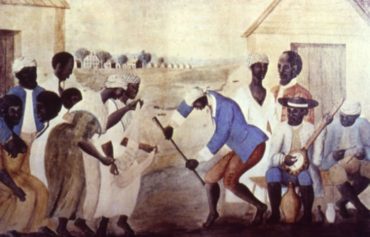The wealth gap between white and black families has exploded over the past 25 years, affecting the comfort of black families, the viability of black neighborhoods and the opportunities of successive generations of African-American young people, according to a fascinating new study by Brandeis University’s Institute on Assets and Policies.
Brandeis followed up a 2009 survey of American households—which found that the medial wealth of white families was $113,149 compared with $6,325 for Latino families and $5,677 for black families—by tracing the same set of 1,700 working Americans households over 25 years, from 1984 to 2009. The researchers found over that period, the wealth gap between white and black families nearly tripled, increasing from $85,000 in 1984 to $236,500 in 2009.
For each dollar in income increase during these years, white wealth grew $5.19 while black wealth growth amounted to 69 cents.
Perhaps the most fascinating aspect of the survey was the revelation of that the wealth gap is created by entrenched institutional factors connected to race and racism. The researchers found equal achievements, such as income gains, yield unequal wealth rewards for whites and African-Americans.
In the survey, IASP ranked the biggest drivers of America’s racial wealth gap: 1. Years of homeownership; 2. Household income; 3. Unemployment; 4. College education; 5. Inheritance/other financial support.
Home ownership accounted for 39 percent of family wealth for white families, but is 53 percent of black wealth. Due to historic differences in access to credit, the homeownership rate for white homeowners is also 28 percent higher than the same rate for black families.
“Our analysis found little evidence to support common perceptions about what underlies the ability to build wealth, including the notion that personal attributes and behavioral choices are key pieces of the equation,” the survey says. “Instead, the evidence points to policy and the configuration of both opportunities and barriers in workplaces, schools, and communities that reinforce deeply entrenched racial dynamics in how wealth is accumulated and that continue to permeate the most important spheres of everyday life.”
The Brandeis researchers found these factors affected the difference in home ownership: residential segregation artificially lowers demand, placing a forced ceiling on home equity for African-Americans who own homes in non-white neighborhoods; whites are far more able to give inheritances or family assistance for down payments due to historical wealth accumulation, white families buy homes and start acquiring equity an average eight years earlier than black families; whites are far more able to give family financial assistance, so larger up-front payments by white homeowners lower interest rates and lending costs.
Black homeowners were more likely to have high-interest, risky mortgages even when income and credit scores were comparable to those of whites. Because black families have less of a cushion, when the economy crashes, black mortgage borrowers became more than twice as likely as whites to lose their homes to foreclosure.
“The paradox is that even as homeownership has been the main avenue to building wealth for African-Americans, it has also increased the wealth disparity between whites and blacks. . . Wealth in black families tends to be close to what is needed to cover emergency savings while wealth in white families is well beyond the emergency threshold and can be saved or invested more readily.”
While a college education can be a crucial factor in building weath, it also exacerbates the problem: For black college graduates, 80 percent begin their careers with student debt, while for white college grads, the corresponding debt is 64 percent.
“Public policies play a major role in widening the already massive racial wealth gap, and they must play a role in closing it,” said report co-author Tatjana Meschede. “We should be investing in prosperity and equity. Instead we are advancing toxic inequality. A U-turn is needed.”


